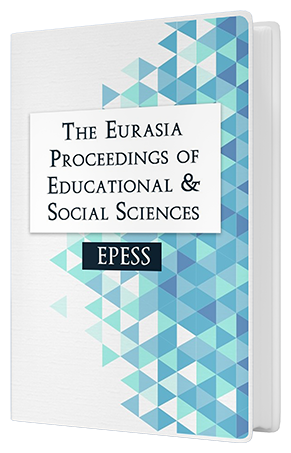Development of a Design Thinking Pedagogical Model for Secondary Schools Science Teachers in Malaysia: A Needs Analysis
DOI:
https://doi.org/10.55549/epess.1218215Keywords:
Design thinking, STEM Education, Pedagogical model, Need analysis, Design and development research (DDR)Abstract
In line with UNESCO's goal of enhancing quality and innovation through various enhancements to Science, Technology, Engineering, and Mathematics (STEM) education, the Malaysian Ministry of Education also places a premium on information enhancement through STEM education and the Malaysia Education Blueprint (MEB) 2013-2025. Design thinking is an essential component of STEM education in modern schooling. The significance of design thinking, particularly in STEM education, fosters creativity and innovation in problem-solving among students. The needs analysis research is the early phase of Design and Development Research (DDR). This study aims to determine the requirements for developing a Design Thinking Pedagogical Model for secondary school science teachers in Malaysia. The interview method was used to perform the qualitative research. Thus, semi-structured interviews with three science teachers were conducted to explore teachers' perspectives on the need to develop a Design Thinking Pedagogical Model. Purposive sampling was used to choose these experts, and they all matched the criterion. Thematic techniques such as verbatim transcription, coding, and themes were used to examine the interview data. The findings of this study indicate that researchers need to develop a Design Thinking Pedagogical Model of Science by a panel of expert teachers in teaching sciences in secondary schools. As such, the development of this Design Thinking Pedagogical Model will serve as a practical guide for teachers in terms of training and utilizing design in students and practicing the skills necessary for the 21st century through learning and facilitation.Downloads
Published
Issue
Section
License
Copyright (c) 2022 The Eurasia Proceedings of Educational and Social Sciences

This work is licensed under a Creative Commons Attribution-NonCommercial-ShareAlike 4.0 International License.
The articles may be used for research, teaching, and private study purposes. Any substantial or systematic reproduction, redistribution, reselling, loan, sub-licensing, systematic supply, or distribution in any form to anyone is expressly forbidden. Authors alone are responsible for the contents of their articles. The journal owns the copyright of the articles. The publisher shall not be liable for any loss, actions, claims, proceedings, demand, or costs or damages whatsoever or howsoever caused arising directly or indirectly in connection with or arising out of the use of the research material. All authors are requested to disclose any actual or potential conflict of interest including any financial, personal or other relationships with other people or organizations regarding the submitted work.




